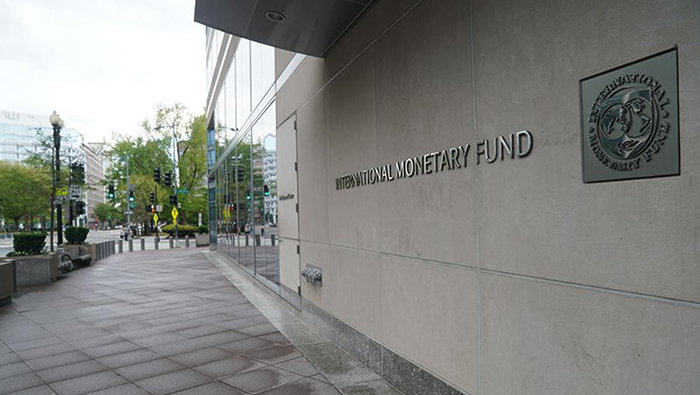
Washington: Coordinated and continuous international action will be essential to support vulnerable countries, restore market confidence, contain financial stability risks, and spur global economic recovery from the COVID-19 pandemic, a senior official of the International Monetary Fund (IMF) has said.
"As countries implement necessary quarantines and social distancing practices to contain the pandemic, the world has been put in a Great Lockdown. The magnitude and speed of collapse in an activity that has followed is unlike anything experienced in our lifetimes," Zhang Tao, deputy managing director of the IMF, told Xinhua in a recent written interview.
"At this point, there is great uncertainty about its severity and length of the economic downturn," he said.
The global economy is expected to contract sharply by 3 per cent this year in a baseline scenario as a result of the pandemic, the worst recession since the Great Depression in the 1930s, according to the IMF's latest World Economic Outlook (WEO) report released Tuesday.
Advanced economies will contract significantly by 6.1 per cent in 2020, and emerging market and developing economies, which typically have growth levels well above advanced economies, will shrink by 1.0 per cent, the report showed.
Citing the IMF's newly-released Global Financial Stability Report (GFSR), Zhang said the global financial system has already been "dramatically impacted" by the pandemic.
"A further tightening of financial conditions and an intensification of the crisis could threaten global financial stability. The risks to the outlook, globally, are certainly on the downside," he said.
While advanced economies have already absorbed a severe blow, emerging markets and frontier markets could endure a crisis that causes intense economic, financial and social pain, Zhang warned.
"If the economic crisis intensifies, there is a risk - not a certainty, but a risk - that a financial crisis could occur," he said, noting emerging markets have seen exceptionally large portfolio outflows since the beginning of the COVID-19 outbreak.
"The speed and magnitude of the capital outflows are unprecedented posing policy challenges" for emerging markets, Zhang said, adding the IMF Executive Board has just approved a new short-term liquidity line for countries with strong economic fundamentals, including many emerging markets.
The Fund's membership will also explore whether the use of Special Drawing Rights (SDRs) could be helpful particularly to emerging market and developing economies, according to the IMF official.
"Particularly, a general SDR allocation has been practiced in the past, which by its nature would take time, likely several months as in the past, to secure, as it was done in 2009 during the Global Financial Crisis," he said.
Zhang stressed that authorities should also take vigorous monetary, fiscal, and financial policies to cushion the impact of the shock, as "coordinated, continuous international action" will be essential to support vulnerable countries, restore market confidence, and contain financial stability risks.
"The IMF is working around the clock - its all-hands-on-deck as we support our 190 member countries with policy advice, technical assistance, and financial resources," he said, adding the IMF has 1 trillion US dollars in lending capacity.
The IMF official observed that the Chinese economy is "gradually turning around" after taking a hit in the first quarter due to the COVID-19 outbreak, as "market liquidity and financial stability are generally maintained."
"As a result, the widespread re-opening of firms and the fact that employees are returning to work makes us hopeful that we will see a strong recovery starting in Q2," Zhang said.
But more work needs to be done to address downside risks, he noted, citing examples of efforts needed to prevent the virus from returning, which could force new containment measures and impede growth.
"In addition, measures need to be taken to meet the challenges associated with the slowdown of global economic demand and the disruptions of global supply chains, as the pandemic and lockdown continue to affect other countries," Zhang said, suggesting policymakers will have to keep an eye on it and be ready to add to the macroeconomic support that is already planned.
It is also important to ensure a strong and sustainable recovery with a focus on high-quality growth, as "this will benefit both the Chinese people and the global economy," he said.
Given the increased need for medical instruments and medical supplies around the world to fight the pandemic, Zhang hoped these supply chains would work as best as they can to maximise global production and supply.
"This makes global collaboration essential, including in the area of medical supplies in particular and trade in general," he said. "Today more than ever, the global economy would benefit from a more open, stable, and transparent, rules-based international trade system."